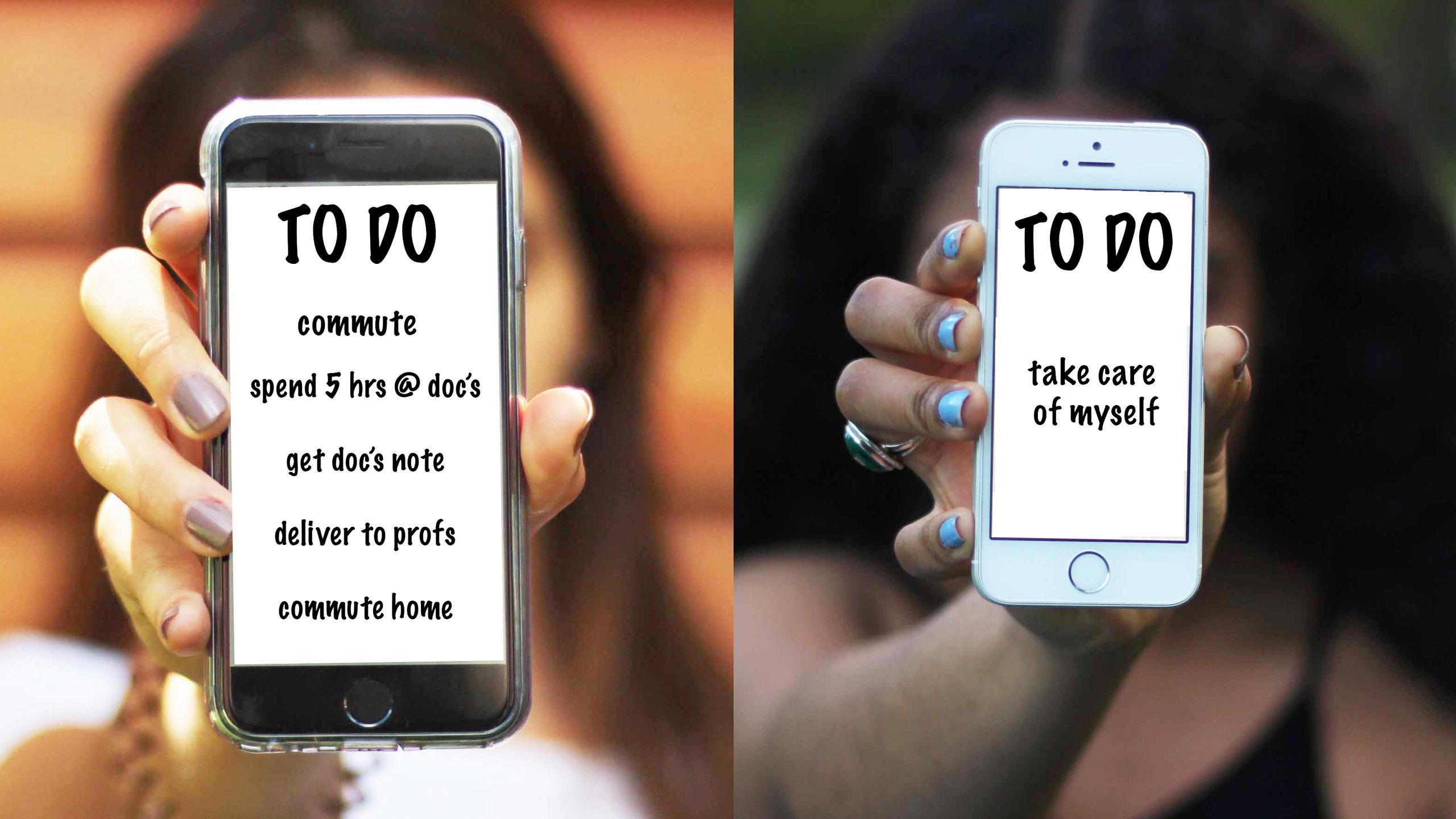By Raneem Al-Ozzi
The Ryerson Students’ Union (RSU) is looking to advocate for better accessibility and academic accommodation services for students on campus.
Camryn Harlick, RSU’s vice-president equity, is pushing to eliminate the process of presenting medical documentation for academic accommodation services, making textbooks more affordable and implementing a student note-taker system that is more accessible to students than the one offered by the Academic Accommodation Support (AAS) office.
No more medical documentation
Ryerson’s AAS office, which provides counselling and accessibility services, accommodates students with learning disabilities, sensory impairments, brain injuries, mental illnesses and physical disabilities.
The process to register with AAS is a three-step procedure which involves providing a digital copy of medical documentation, completing an online intake form and then attending a registration appointment.
However, the process is dependent on a student’s verification of medical documentation. According to the AAS website, documentation that is authorized by a healthcare professional must be obtained before completing the intake form and attending a registration appointment.
The Eye previously reported that a York University student was forced to specify her mental illness in order to receive academic accommodation in 2014. The student filed a human rights complaint against the school, which sparked a change to keep mental illnesses unnamed when filling out an accommodation form at York and other universities across the province.
Harlick said that access to counsellors and doctors for support and diagnoses is limited to those who are able to afford it, adding that they want to work on removing protocols that focus on a largely medical model of disability in order to receive an accommodation.
According to Harlick, some people may not feel as though doctors and other healthcare professionals provide a safe space for them and may trigger them, especially in case of racialized, Indigenous and transgender students, they added.
“If students who are in need of accommodations are not able to access them because of a medical model then that’s a huge problem.”
Reduced textbook fees
Harlick is also aiming to tackle inaccessibility by looking at textbook fees. A 2014 study conducted by advocacy group U.S. PIRG, found that 65 per cent of students decided against buying a textbook because it was too expensive.
Nearly half of all students surveyed said that the cost of textbooks impacted how many and which classes they took each semester, and 82 per cent felt they would do significantly better if the textbook was available for free online.
Accessible note-taker system
Harlick said they would like to implement a student note-taker system that is more accessible than the one offered by the AAS.
Ideally, student note-takers would be paid $15 per hour like the rest of the part-time staff working at the RSU to take notes for students who have accessibility issues and are unable to access the medical model to receive their accommodation, they said.
AAS currently has a note-taking system which is only available to students if they are registered with their office.
“At the RSU we do a lot of assuming what people’s needs are and not actually reaching out to those communities and asking them directly,” said Harlick
Moving forward, they want to work with Heather Willis, the accessibility coordinator for Access Ryerson and disability activists on what they would like to see from the RSU and how they can take effective steps towards these student initiatives.
“Ryerson isn’t well-equipped enough to deal with its 35,000 students, and that shouldn’t fall on the student at all. The student shouldn’t have to suffer both economically for not doing well in a class they paid for, but also internally and mentally,” said Harlick.













Leave a Reply